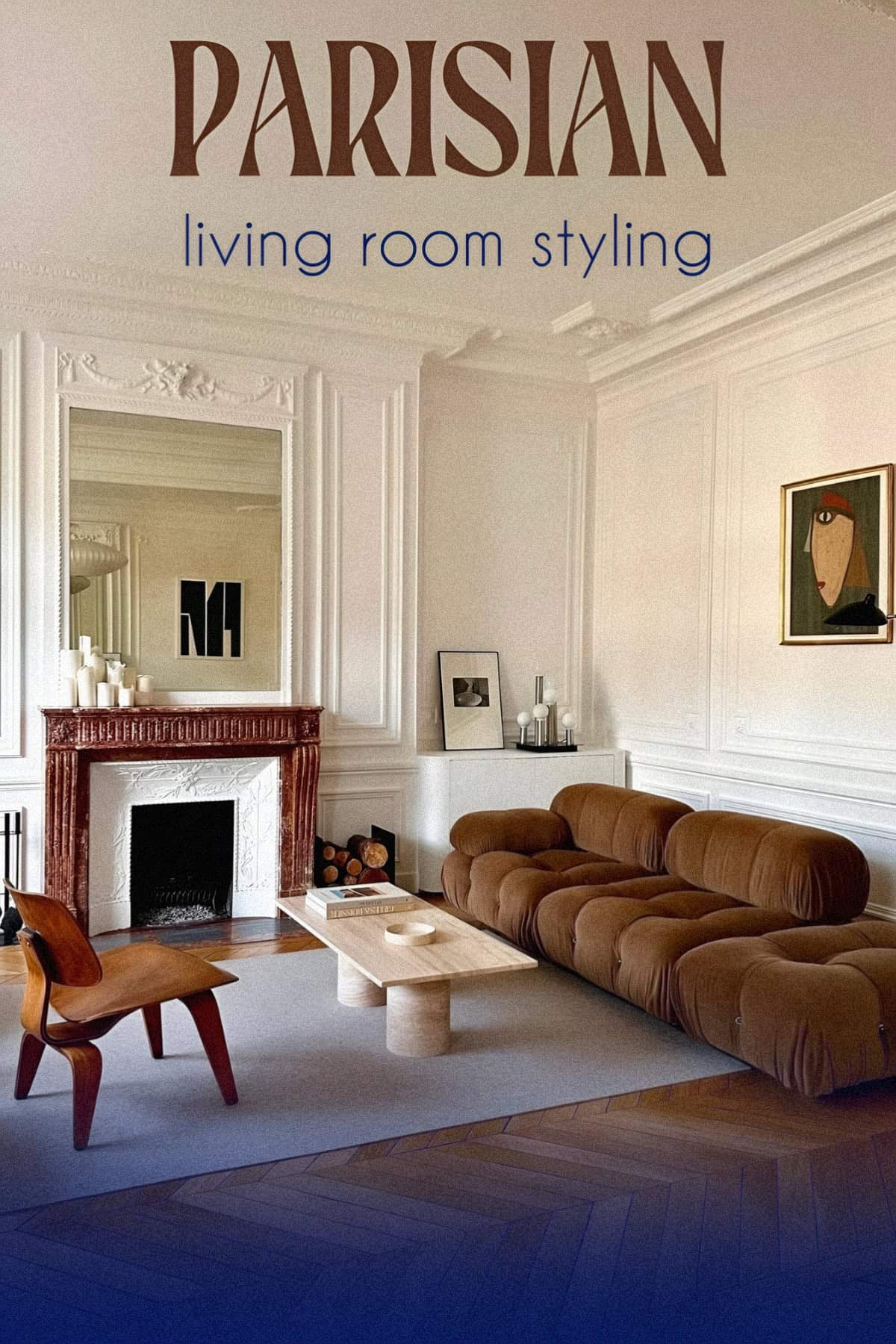
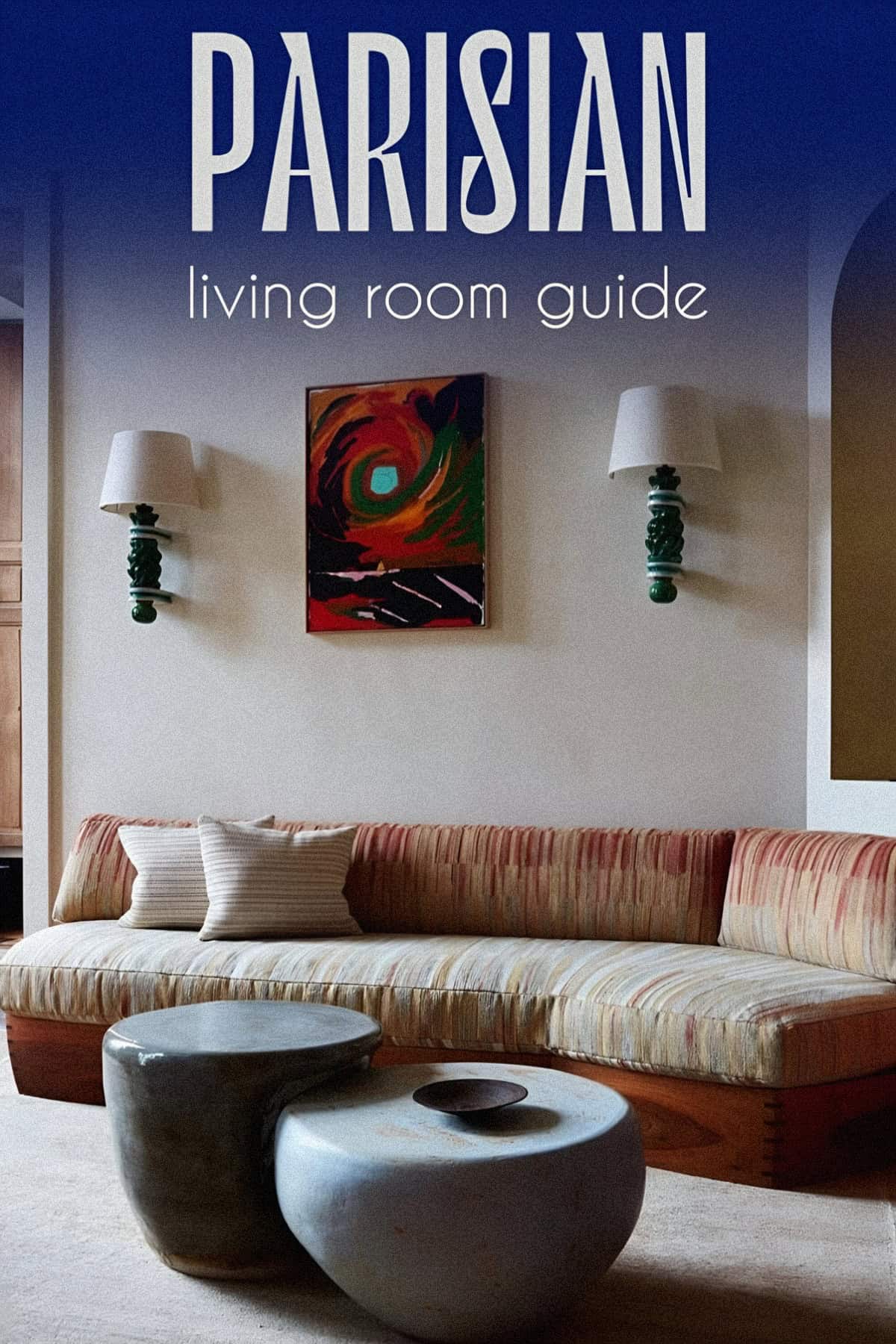
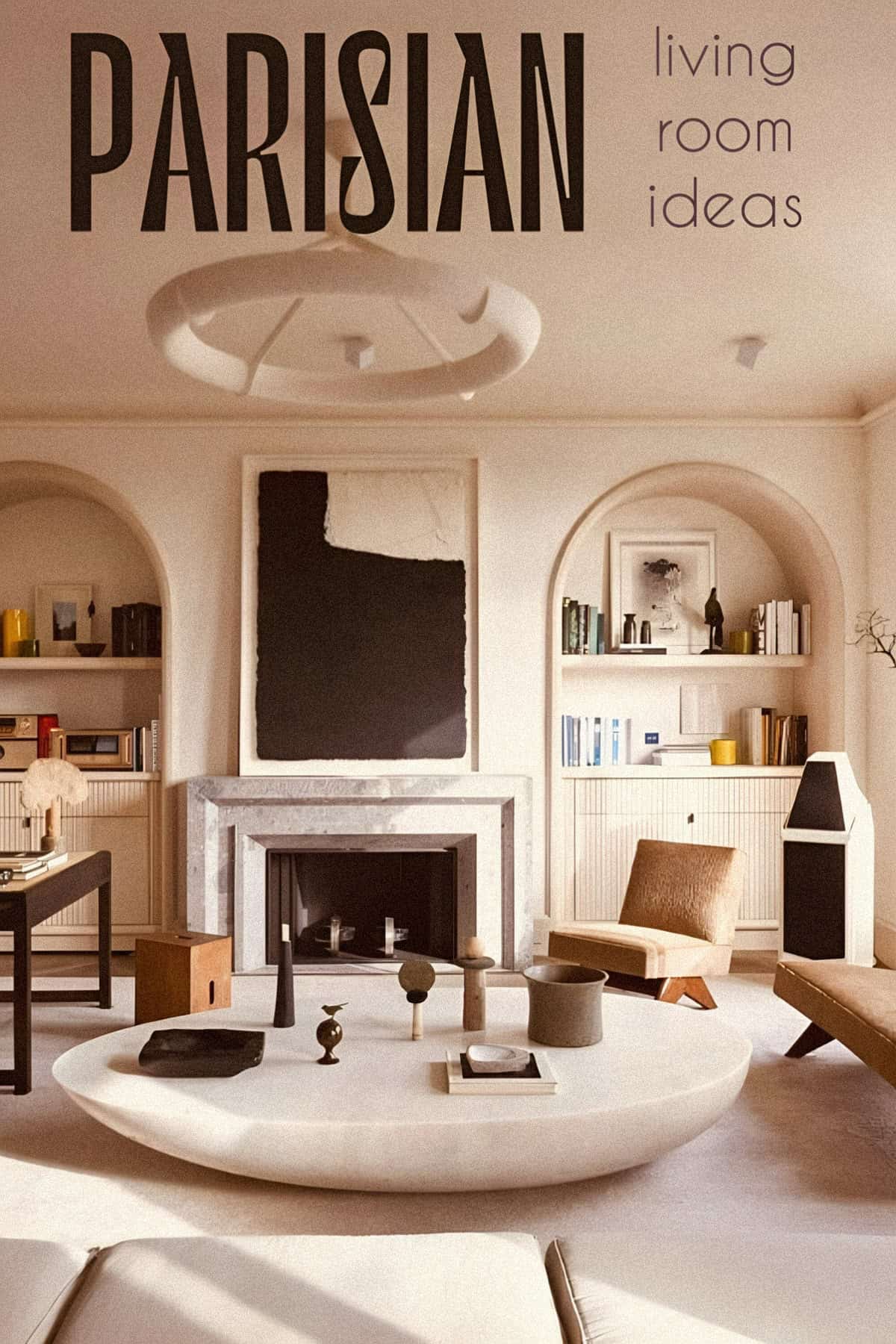
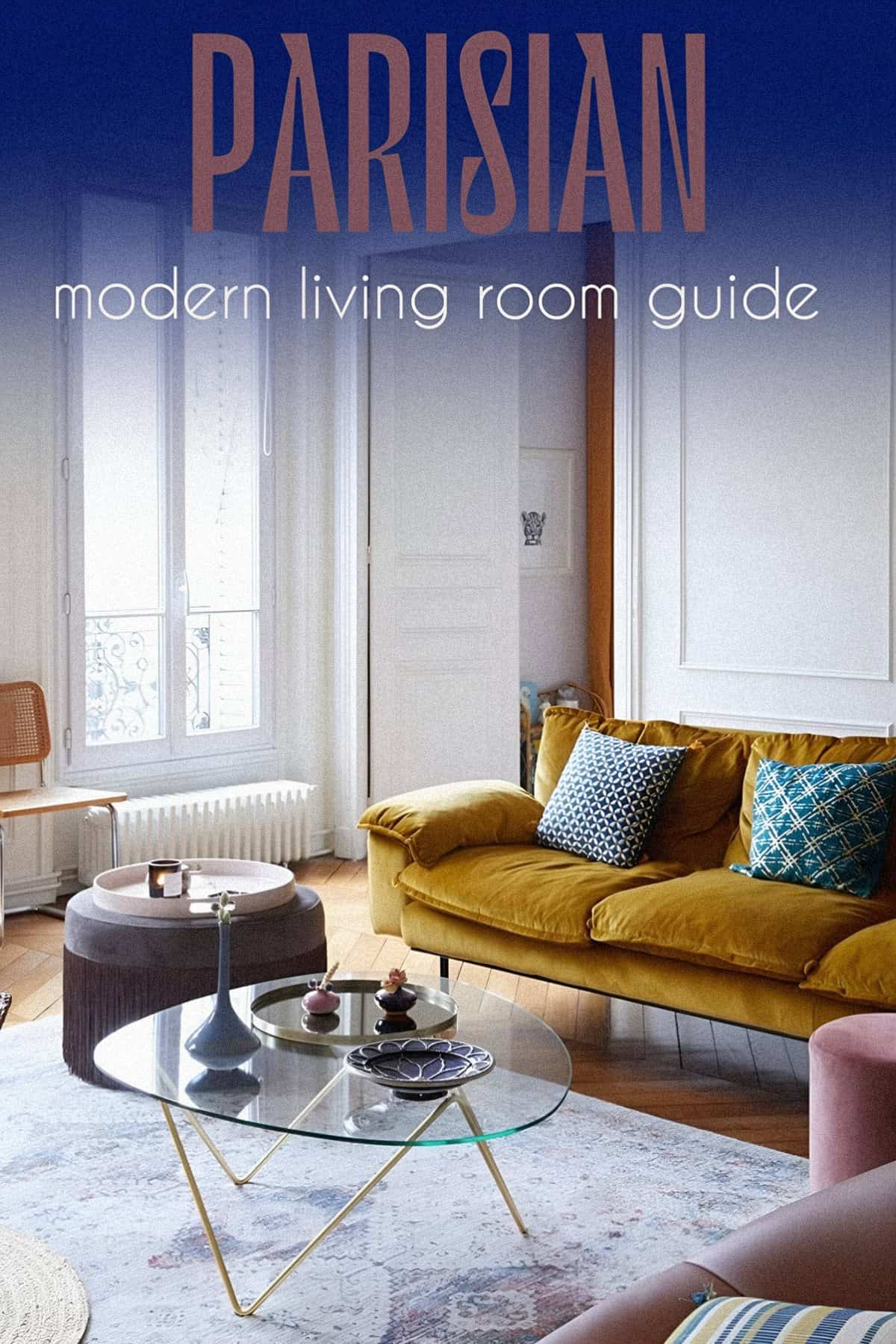
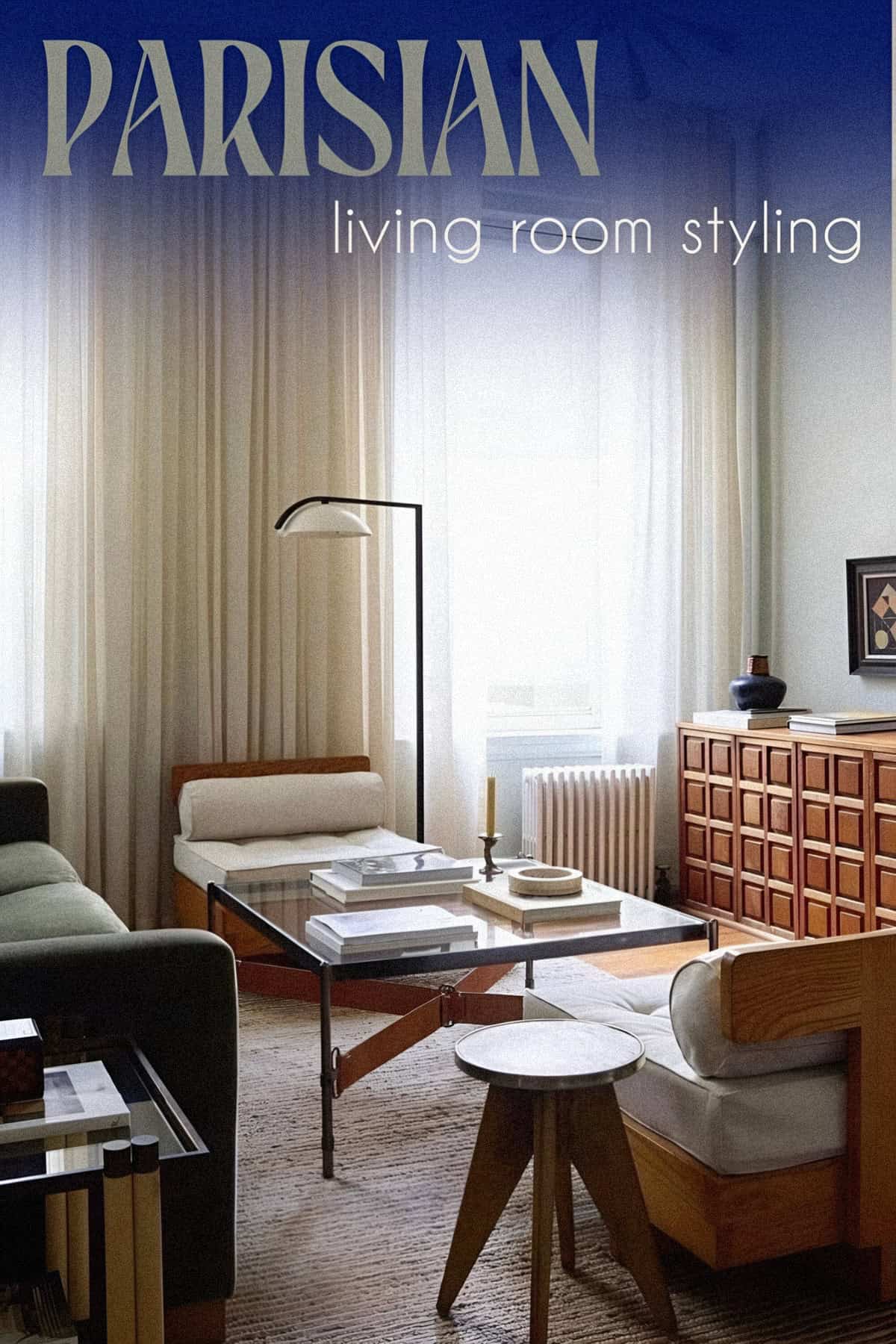
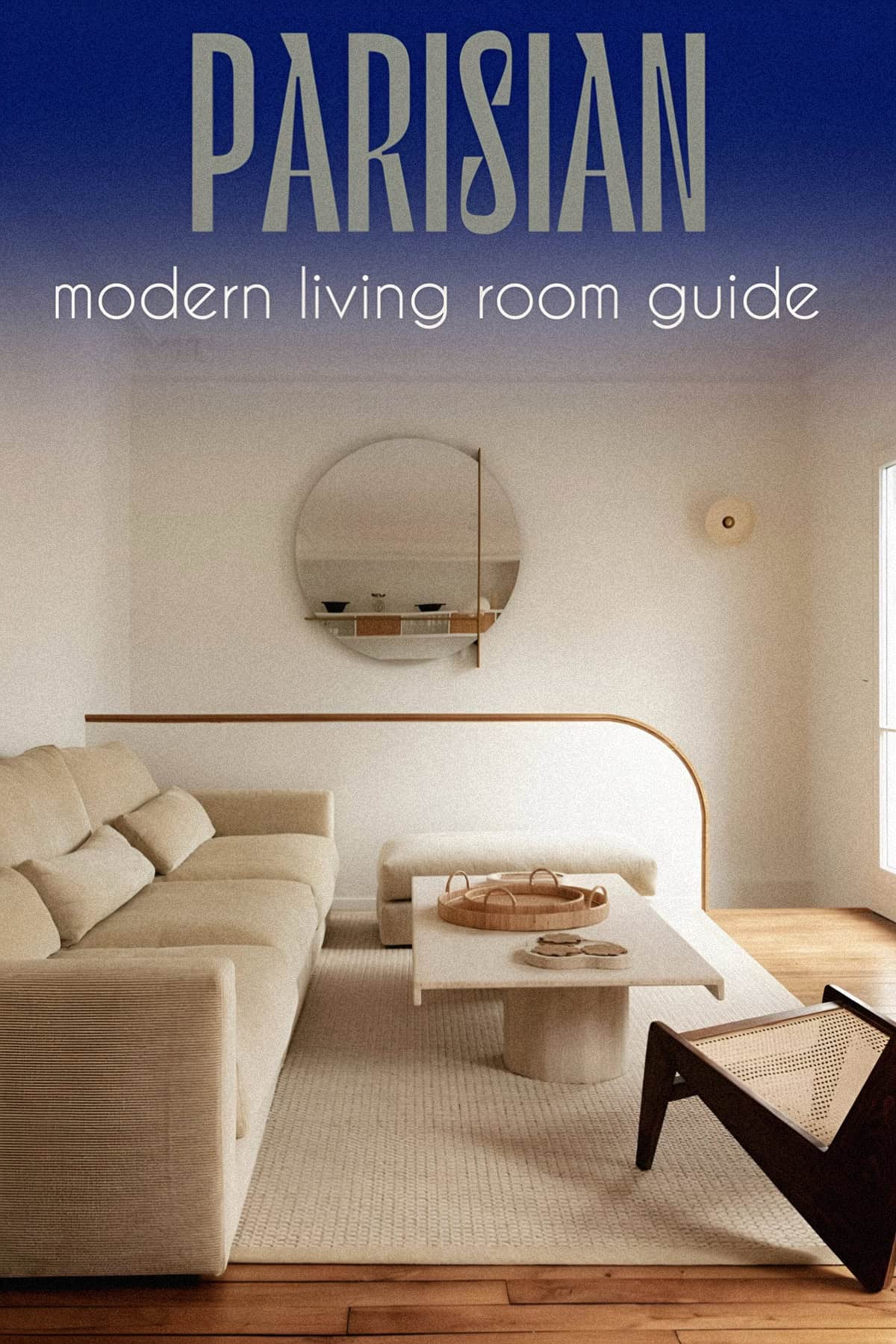
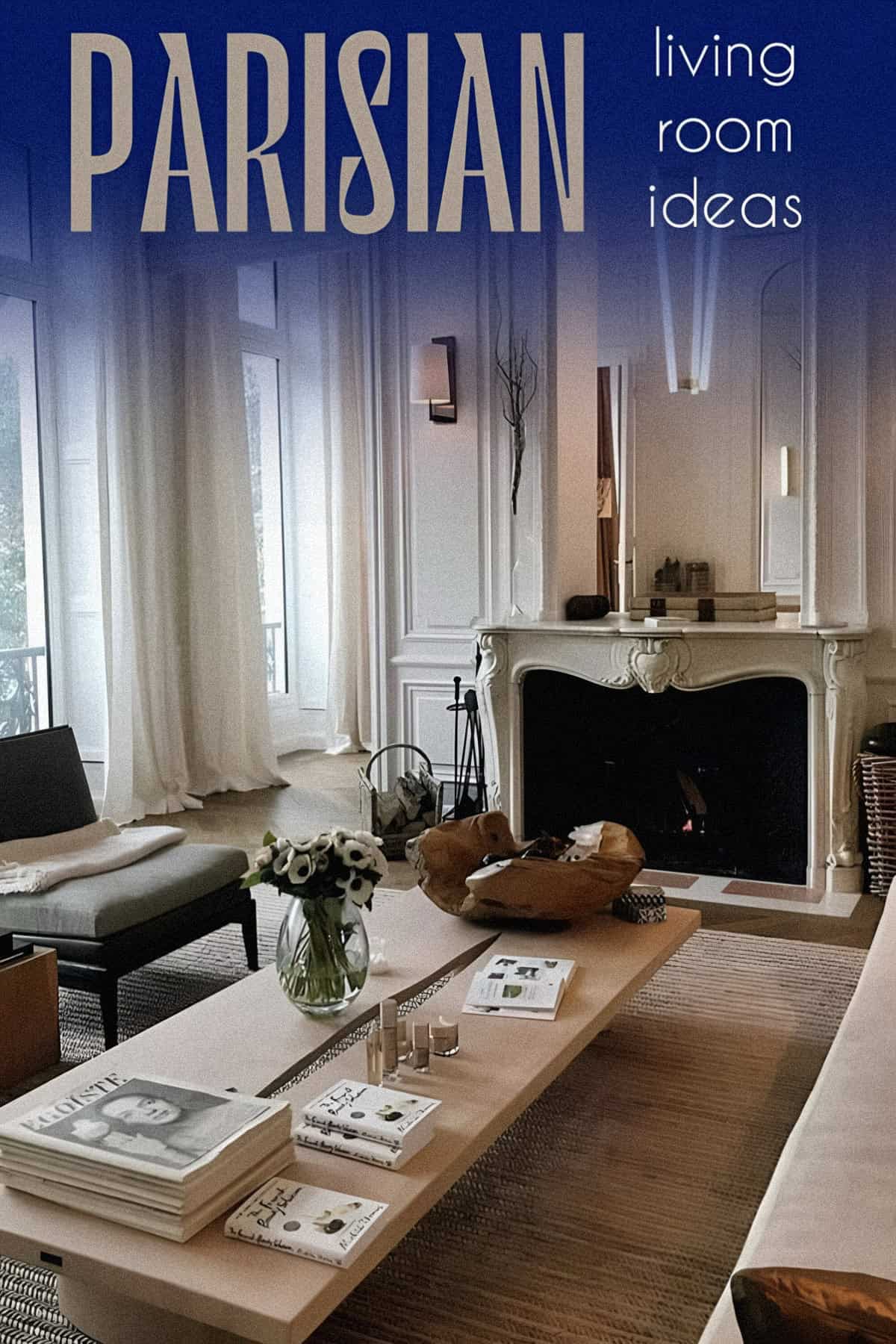
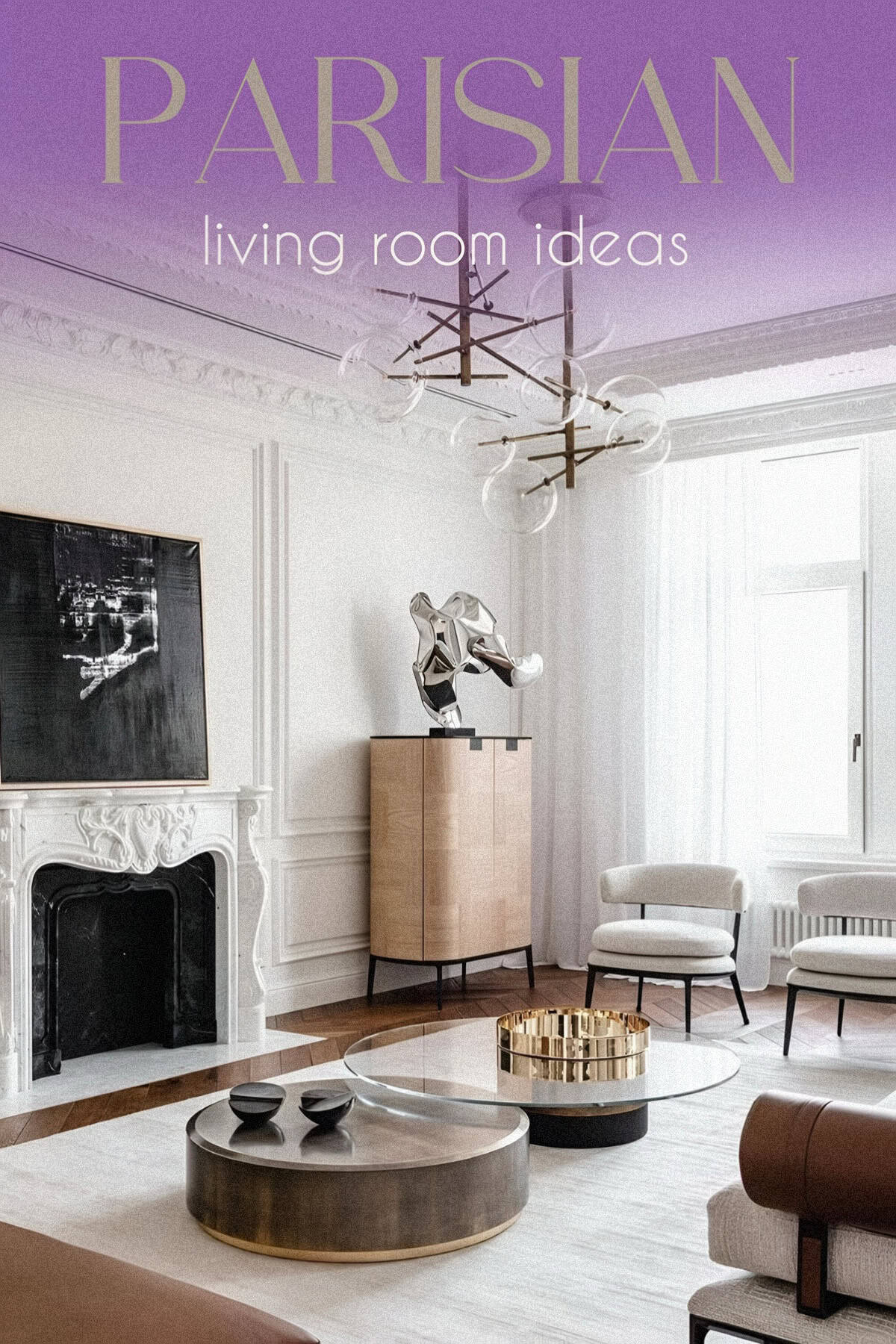
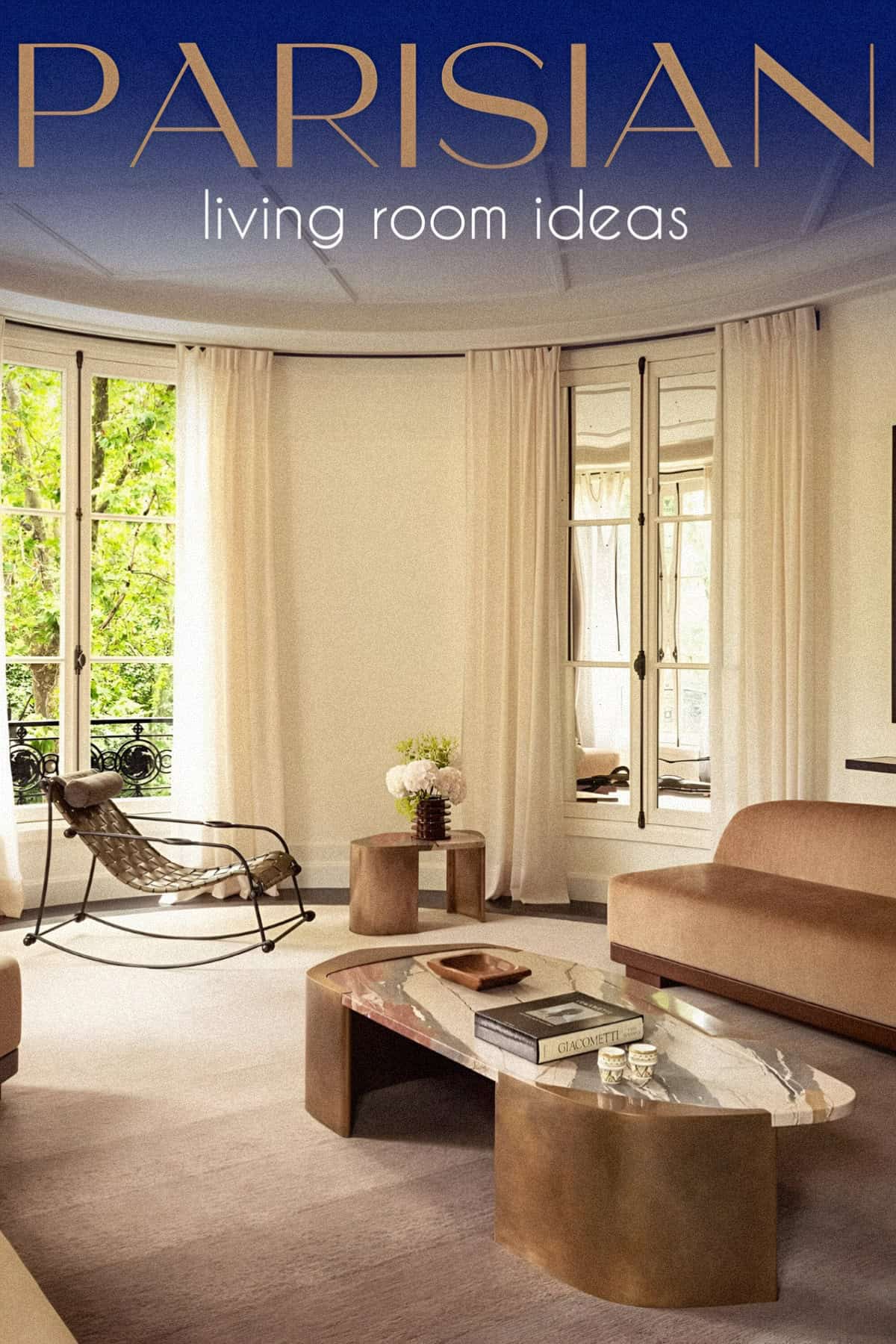
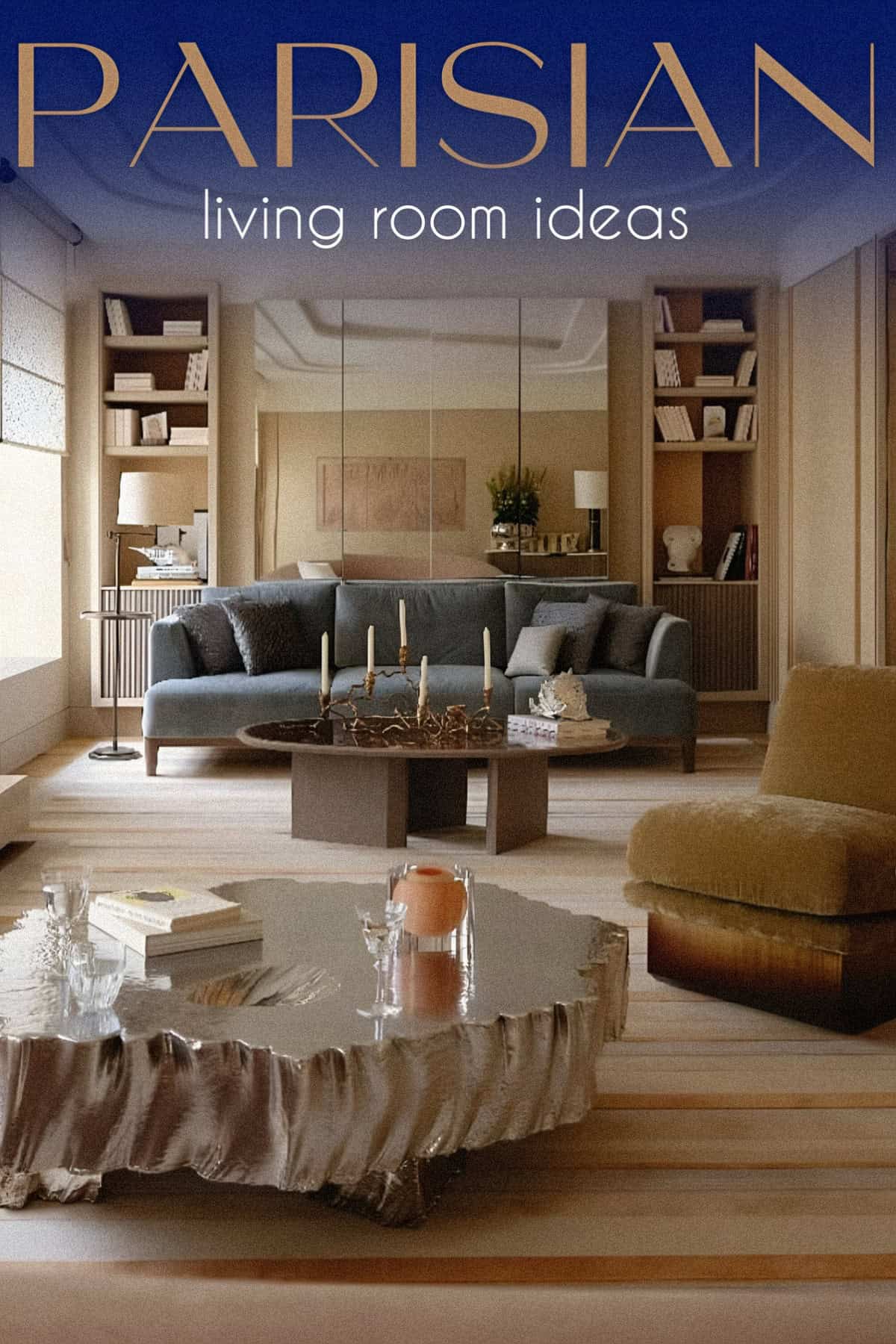
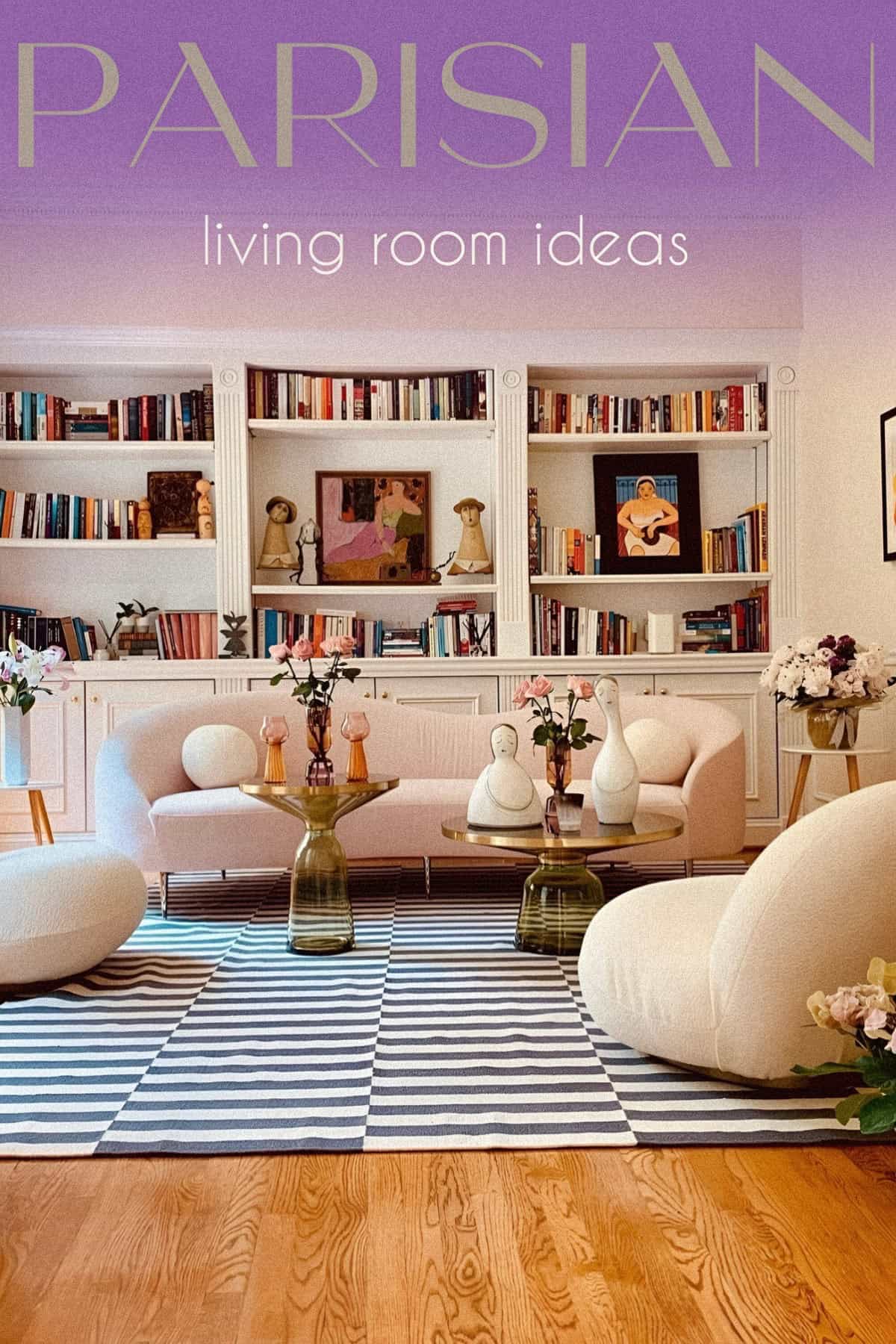
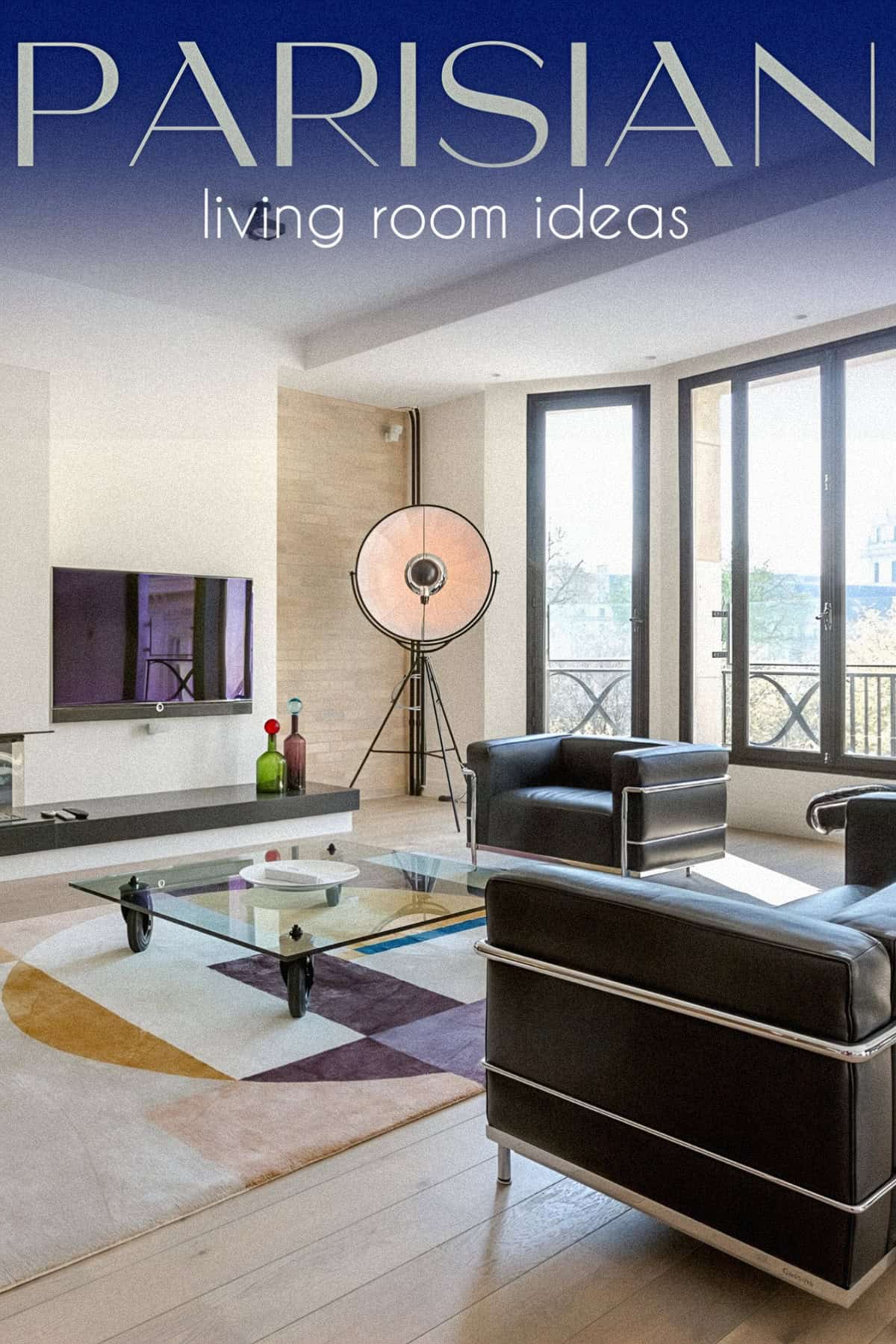
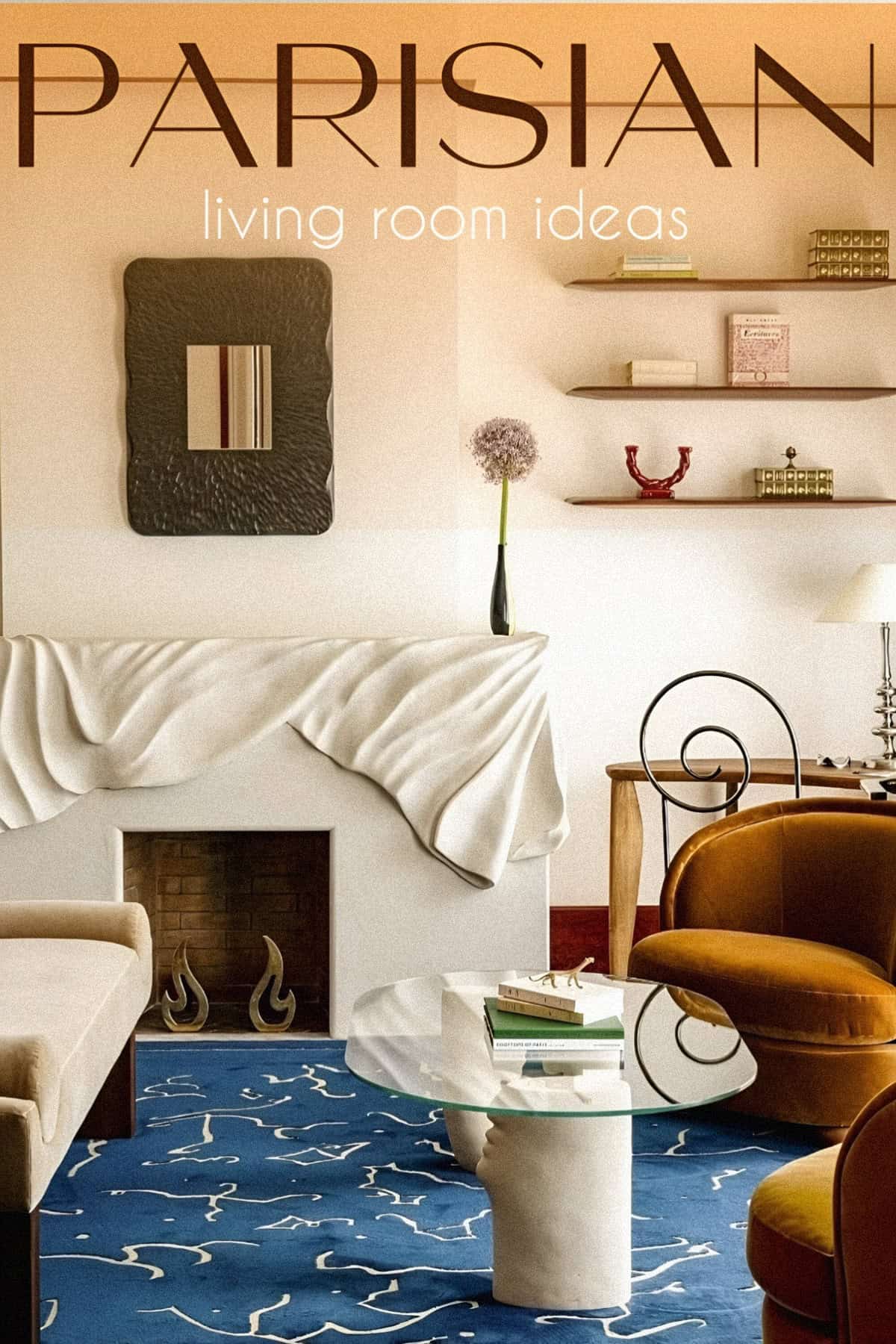
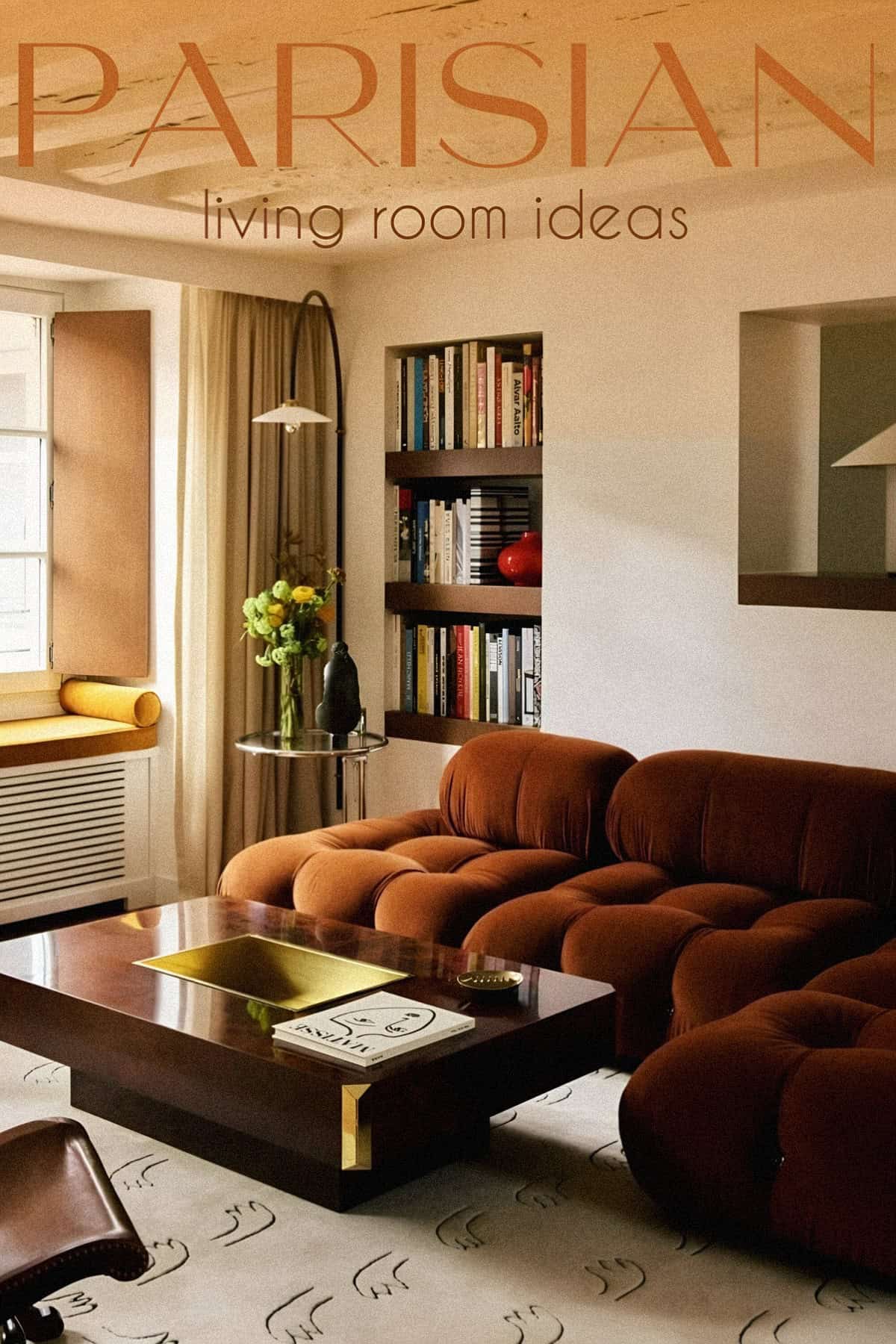
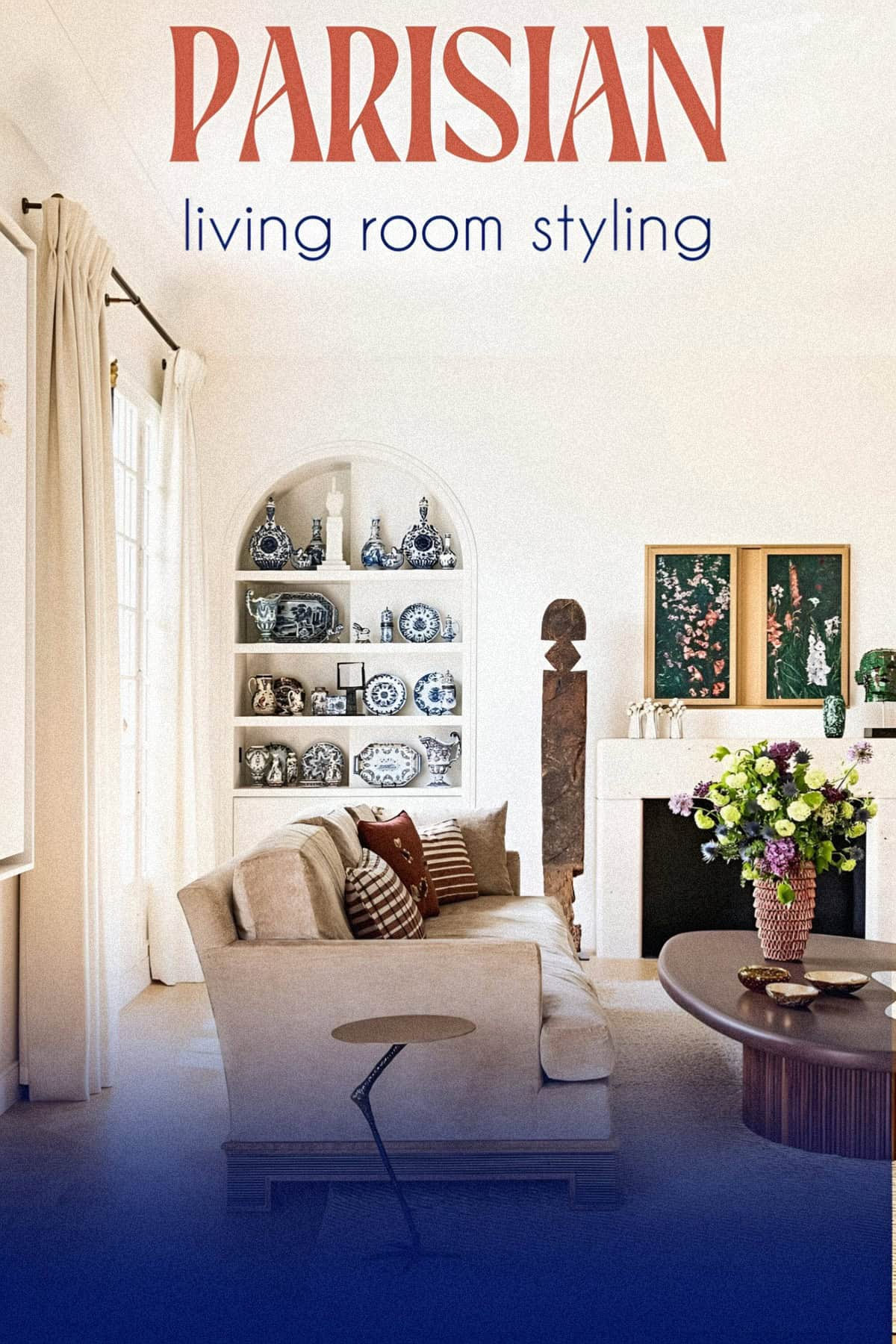
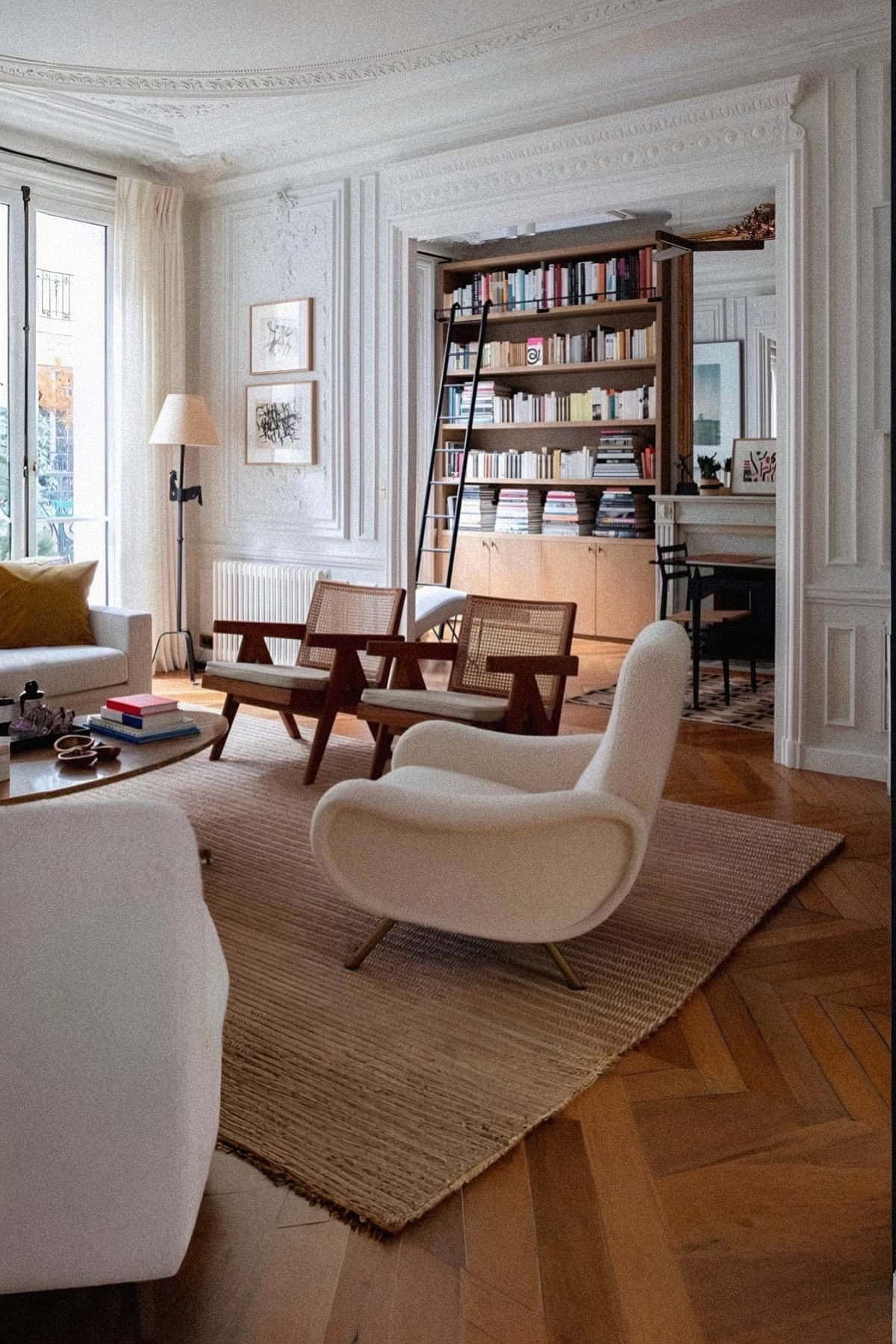
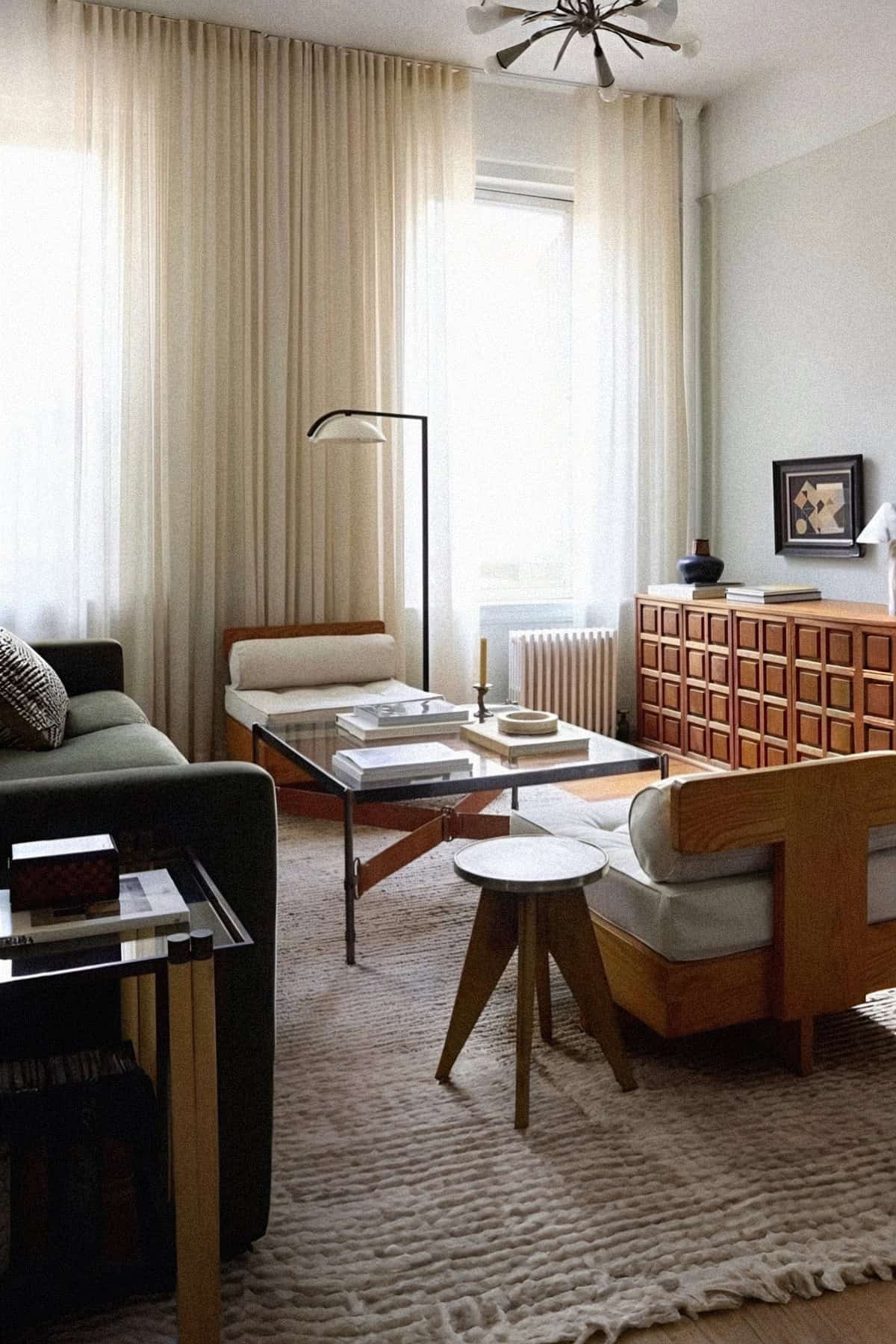
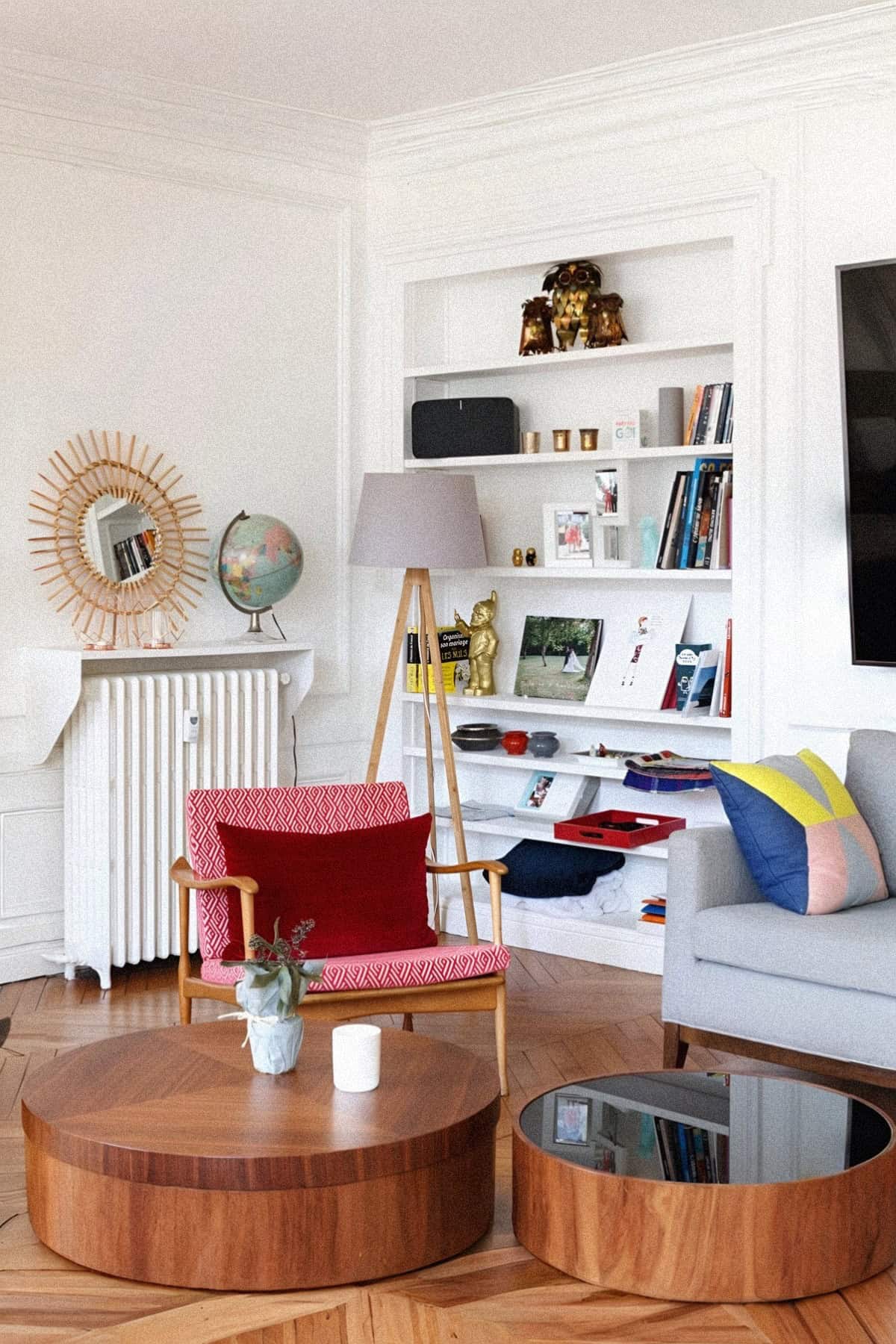
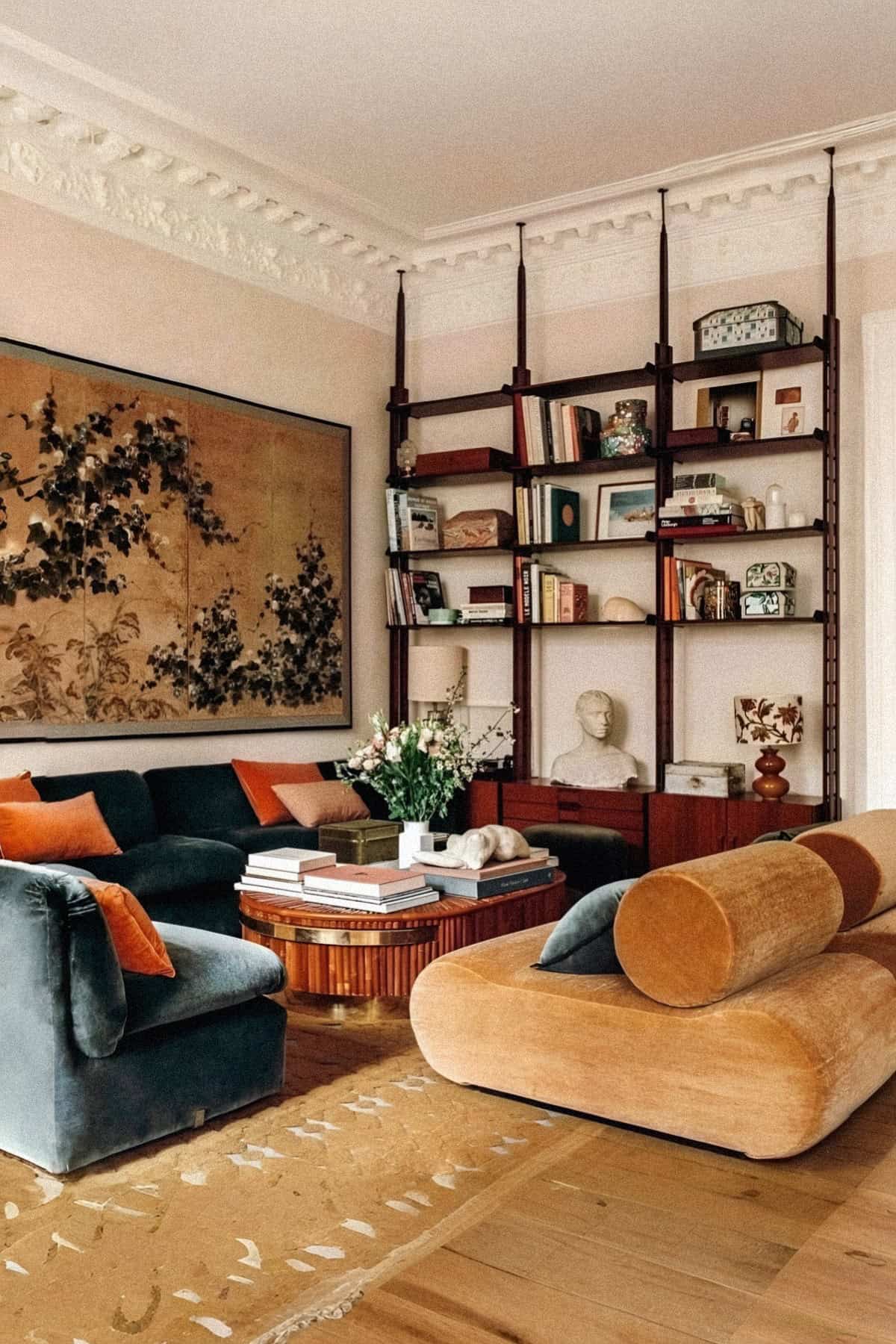
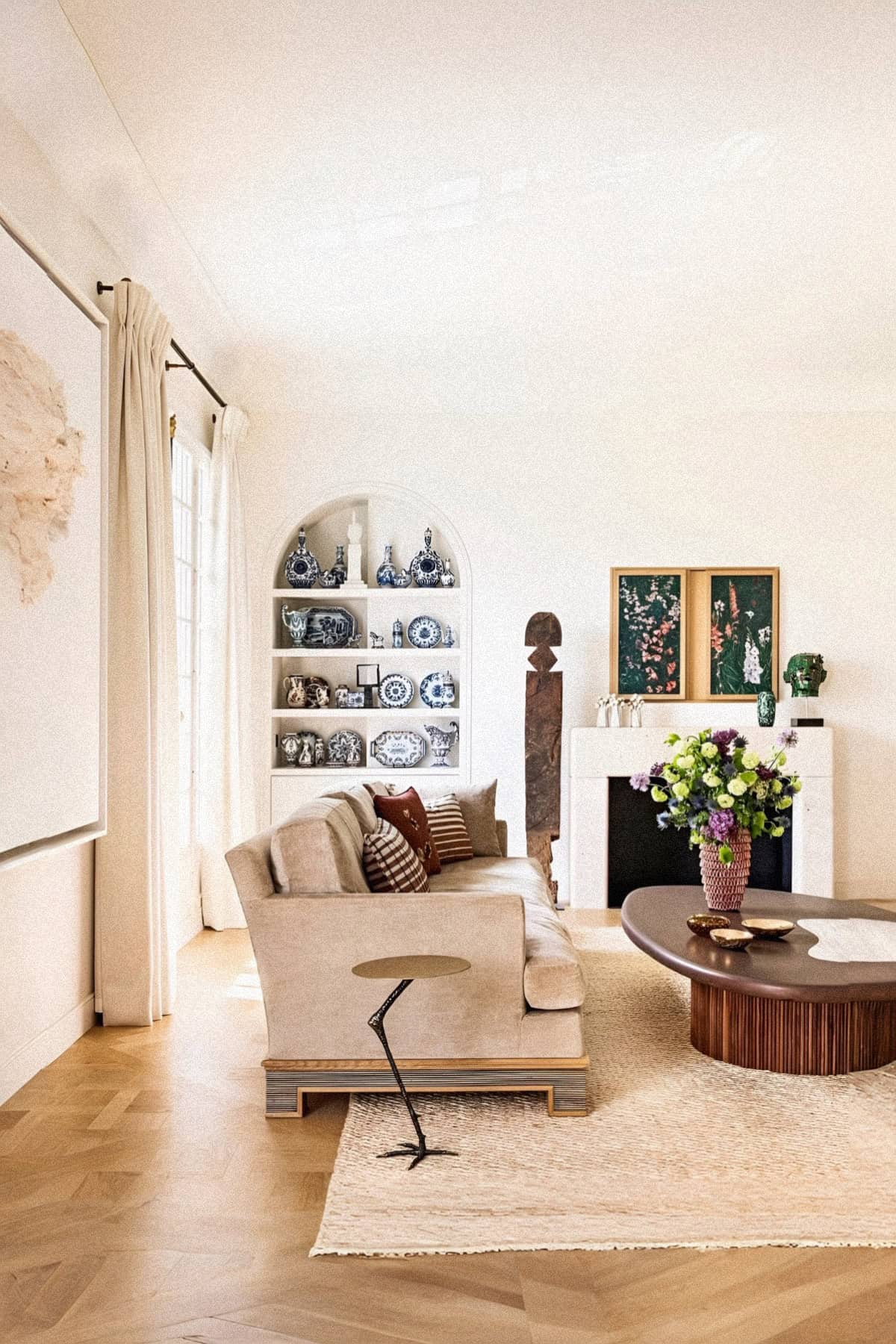
How to Style a Parisian Living Room With Modern Restraint
I’ve always been a sucker for Parisian modern design (especially living rooms). There’s something magnetic about the way old-world bones meet modern ease — the tall windows, the quiet grandeur, the confidence of a single sculptural chair sitting beneath ornate plasterwork. I remember reading about Lenny Kravitz’s Paris apartment years ago in Architectural Digest and stopping mid-article just to take in the photos. Every detail felt intentional yet unstudied — the carved moldings, the patinated mirrors, the leather, the marble, the art. It had that mix of character and control that defines the best Parisian interiors: a kind of harmony between history and edit. I have posted the video tour and you will be blown away at his home. Its nothing short of spectacular.
What Defines the Parisian Modern Look
Parisian modern living rooms are all about contrast. The old architecture sets the stage — high ceilings, carved moldings, marble mantles — while modern furniture adds clarity and calm.
It’s a balance of history and restraint. A low sofa against detailed plasterwork. A sleek brass lamp beside a worn oak table. Nothing feels forced, but every piece has purpose.

Colors stay muted and mineral: chalk, oyster, bone, with quiet depth from charcoal, olive, or cognac. Textures do the talking — linen, marble, wood — catching light in different ways through the day.
And the mood? Unrushed. Parisian modern rooms breathe because they leave space between objects. The magic lives in the tension — that careful mix of polish and imperfection that keeps the room alive.
To understand how the look holds together, you have to start with the architecture itself — those tall windows and ornate details that do half the decorating for you.
The Architectural Backbone
The architecture always does the first bit of talking in a Parisian modern living room. Those tall windows, plaster ceilings, and marble mantles aren’t just decoration — they’re the framework that holds everything together. The trick is to let them breathe.
Furniture doesn’t cling to walls here. Sofas float a few inches forward, creating space between the room’s edges and its energy. When light moves through, it has room to travel — glancing off wood floors, brushing against molding, settling into the grain of a table.

Low, modern silhouettes help the eye rest. They let the height and detail of the room stay in focus while grounding the space in the present. You don’t need to fill every inch; the architecture already gives you volume.
It’s a kind of quiet conversation — structure and simplicity working in tandem. The room feels balanced not because of symmetry, but because every element respects the bones it sits within.
Once the structure is in place, color takes over the conversation. The palette sets the mood, softening the grandeur and giving the space its rhythm.
The Palette: Color as Quiet Contrast
Color does the quiet work in a Parisian modern living room. It doesn’t shout; it hums. The palette usually begins with what Paris is made of — stone, plaster, metal, and light. Walls take on the softness of limestone or the warmth of unbleached linen. Floors bring in honey or tobacco tones from aged wood.
Then come the accents. Deep green velvet on a sofa. A single cognac leather chair. A charcoal side table catching a glint of brass from a nearby lamp. These tones add weight without breaking the calm.

Restraint matters. One or two strong notes are enough to keep the eye moving. When every shade feels pulled from the same weathered street or café chair, the room feels collected rather than coordinated.
Mixing Eras With Intent
One of the most defining traits of a Parisian modern living room is how easily it blends time periods. It’s never all antique or all contemporary — it’s both, in conversation.
A marble fireplace might hold a piece of abstract art. A Louis-style chair could sit next to a steel coffee table. A 1970s floor lamp feels right at home against 19th-century molding. It works because each piece has presence, not perfection.

The trick is to keep balance through rhythm, not symmetry. Designers sometimes call it the “3–5–7 rule” — arranging things in odd numbers so they feel natural to the eye. Three vases on a mantle. Five books stacked under a candle. It’s small, but it creates a sense of ease inside formality.
Nothing in a Parisian modern room feels staged. It’s meant to be lived in, shifted, and layered. The mix of eras adds texture — not just in materials, but in memory. Every piece brings a different kind of time into the room, and together they tell a story that feels collected rather than designed.
Even a narrow entryway can echo the same rhythm — small gestures that set the tone before you step inside.

Lighting as Sculpture
In a Parisian modern living room, lighting is more than function — it’s form. Every fixture adds shape and rhythm to the space, almost like punctuation in a well-written sentence.
A crystal chandelier might hang above a streamlined sofa, while a sculptural floor lamp bends light toward a stack of art books. The mix of old and new keeps the room grounded in time but never stuck in it. The glow is always warm, never harsh, and it falls where life happens — across a table, along a velvet armrest, over the pages of a book.

Think of lighting as the jewelry of the room: not flashy, just deliberate. A brass sconce highlighting texture on the wall. A pendant hovering low enough to define a corner. When placed thoughtfully, light sculpts space the way furniture can’t.
At night, the entire room softens. The architecture fades into shadow, the modern pieces step forward, and what remains is atmosphere — that quiet, cinematic quality that makes Parisian modern interiors feel both lived-in and composed.
Art, Reflection, and Negative Space
Every Parisian modern living room needs a little pause — the space between objects where light and air do their work. That’s where art and mirrors come in. They’re not filler; they’re dialogue.
Artwork hangs low, often centered with furniture rather than floating above it. Mirrors expand light but also add a layer of reflection, catching pieces of the room that you only see indirectly — a chandelier, a corner of molding, the edge of a window. It’s this play of seen and suggested that keeps the room alive.

Walls are never overcrowded. You’ll find a single framed sketch instead of a gallery wall, a large-scale canvas leaning casually against the floor, or nothing at all. Negative space becomes its own kind of ornament.
A Parisian modern living room works because it knows when to stop. The beauty isn’t in what’s added — it’s in what’s allowed to remain.
Parisian Modern Living Rooms in Practice
I’ve gathered a few spaces (ok, more than a few) that capture the look perfectly — rooms with that mix of old architecture, modern lines, and easy contrast. Each one handles light and proportion differently, but they all share the same restraint that makes Parisian modern feel so lived-in and deliberate.










Bringing It All Together
The best Parisian interiors carry this subtle confidence from one room to the next. The living room might lead to a soft, linen-draped bedroom or an entryway layered with patina and light — each space distinct, but connected by tone.
Parisian modern isn’t a checklist or a trend. It’s an understanding — that history and modernity aren’t opposites but partners. When you let structure, texture, and restraint work together, you don’t just decorate a room; you compose one.








